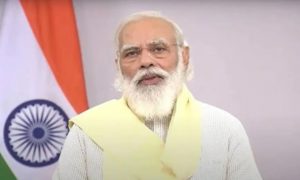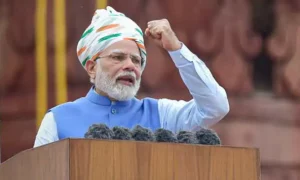Bahujan Samaj Party (BSP) chief Mayawati has just raised the stakes for the impending Assembly elections in three states – Chhattisgarh, Madhya Pradesh and Rajasthan – and in the process focused fresh, if unwanted, attention on the issue of Opposition unity.
Mayawati’s announcement that her party will ally with former chief minister Ajit Jogi’s Janta Congress for the Chhattisgarh elections, accompanied by the release of the first list of 22 names for the Madhya Pradesh elections presaging a solo effort in the state, has put the Congress under pressure.
A look at the results of the 2013 round of elections can help understand the importance for the Opposition of an alliance between the Congress and the BSP. In Chhattisgarh, the BJP had got 41 percent of the vote, the Congress 40.30 and the BSP 4.30. In Madhya Pradesh, the figures were, in the same sequence, 44.88, 36.38 and 6.29 percent. In Rajasthan, 45.20, 33.10 and 3.40 percent. In Chhattisgarh the BJP had got 49 seats, the Congress 39 and the BSP one seat; in Madhya Pradesh, the figures were 165, 58 and four; and in Rajasthan, 163, 21 and three.
In Chhattisgarh, all other things being equal, the combined vote shares of the Congress and the BSP would upend the results. In Madhya Pradesh, it would help a putative combination to close the gap to a whisker. But in Rajasthan, an alliance wouldn’t even scratch the surface.
But all other things are not equal. In 2018, there is no overwhelming wave against the Congress. If anything, it is the BJP that faces an anti-incumbency problem both in these states and at the Centre.
In Chhattisgarh, where a ‘third front’ has been announced, the magnitude of the anti-incumbency problem is the smallest, which promises a tight contest. That is why the Congress could have done with the assistance an alliance would have provided. It failed to materialise because the Congress was not prepared to concede the number of seats Mayawati wanted.
This is the nub of the problem. Obviously, both parties would like to maximise their gains. But it is more important for the Congress to strike a deal because victories in these three states will help the process of revival and give it a platform to challenge the BJP in the 2019 Lok Sabha elections. Mayawati has announced that her party will contest 35 seats and Jogi’s 55. How many seats Mayawati wanted from the Congress is not known to the public, but it can be taken as read that she would have been satisfied with a much smaller share.
In Madhya Pradesh, the government led by Shivraj Singh Chouhan faces anti-incumbency because it has been in power for close to 13 years; the BJP has been in power for almost 15 years. But the Congress also has huge problems, principal among them is the multiplicity of leaders who cannot or will not pull together as factionalism debilitates the party. The challenge for the Congress is to get Kamal Nath and Jyotiraditya Scindia, mainly, on the same page. It is also critical that it puts together an alliance with the BSP. Yet, in this state, too, the Congress is failing to recognise that the stakes are higher for it and it must, therefore, go the extra mile.
In Rajasthan, the problem is entirely different. The Congress was, as the figures cited show, skewered by the electorate. Not only was the gap in the number of seats huge (that was the case in Madhya Pradesh as well) but so was that in vote share, at over 12 percent. But, for a variety of factors, the Congress is quite well placed to wrest the state from the BJP: principal among them are Chief Minister Vasundhara Raje’s unpopularity in her own party, the lack of a BJP ‘wave’ and the state’s recent history of alternation.
That is probably why state Congress chief Sachin Pilot is against an alliance he thinks his party does not need. This is precisely the kind of thinking that could prove to be the rock on which opposition unity flounders. If the Congress wants an alliance with the BSP, it must be prepared to enter agreements in all three states. The ‘high command’ must impress this point on the state units as part of an overall strategy and it must be prepared to concede ground it does not think is necessary.
Mayawati’s announcements could well be part of a strategy aimed at pressuring the Congress. The latter must, in any case, read them from that perspective and keep negotiations alive. Even if the Chhattisgarh deal is final, alliances may be possible in Madhya Pradesh and Rajasthan. The imperative the Congress faces is intensified by the need to construct alliances in other states for the Lok Sabha elections. There is the real possibility that the Congress could find itself out of the loop if the BSP and Samajwadi Party cut a deal in Uttar Pradesh, a prospect it surely would not relish.
With a ‘federal front’ somewhat in the making, the Congress is already threatened by the prospect of becoming a bit player in a push against the BJP. That is why it is all the more essential for it to come to an understanding in the three states facing elections this year. The Congress’ participation in a broad front is not just of critical importance to it, it is also vital for the success of anti-BJP coalition.
For more updates: Like us on Facebook and follow us on Twitter & Instagram




































